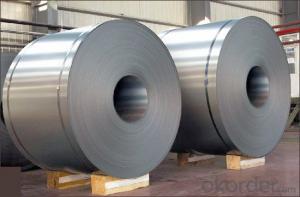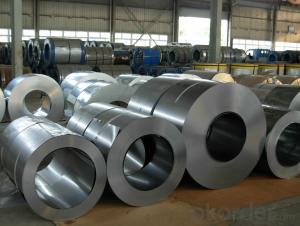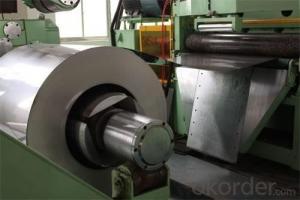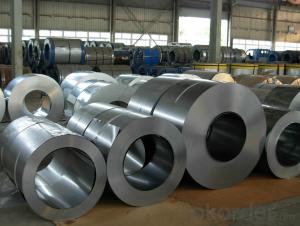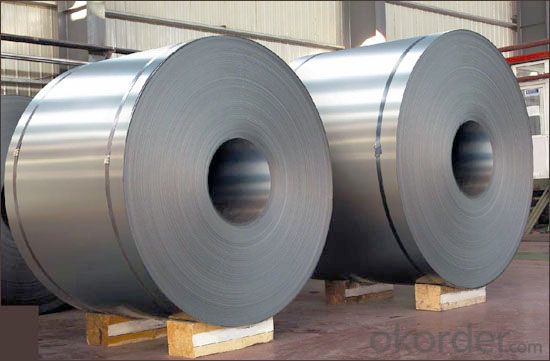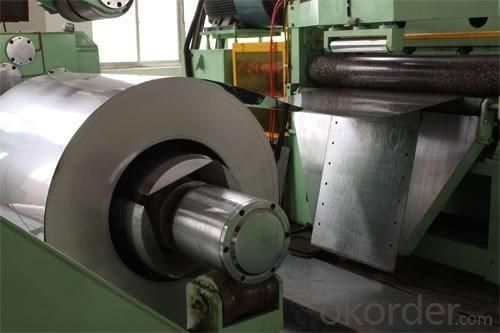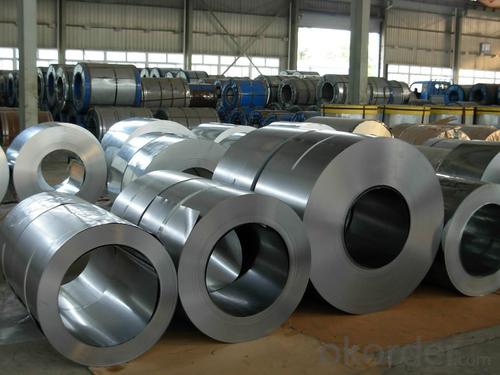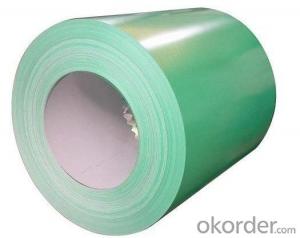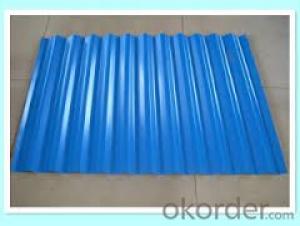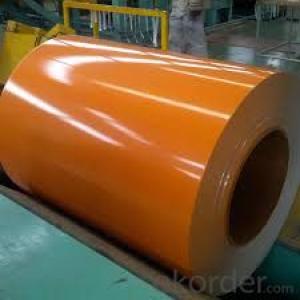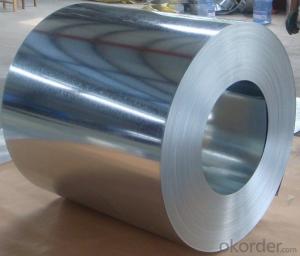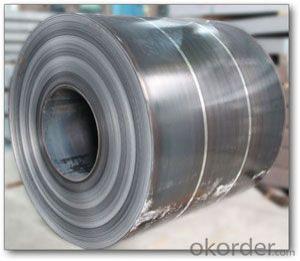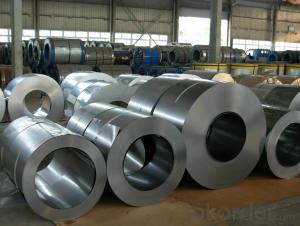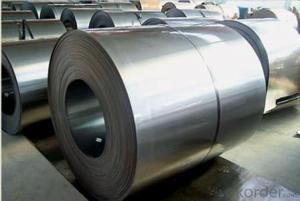Cold Rolled Steel Coil with Prime Quality various sizes and Lowest price
- Loading Port:
- Shanghai
- Payment Terms:
- TT OR LC
- Min Order Qty:
- 100 m.t.
- Supply Capability:
- 10000 m.t./month
OKorder Service Pledge
OKorder Financial Service
You Might Also Like
1.Structure of Cold Rolled Steel Description:
The raw material of cold rolled steel coil/sheet is high quality hot rolled product, and after pickling continuous rolling. degreasing,
3.Cold Rolled Steel Images
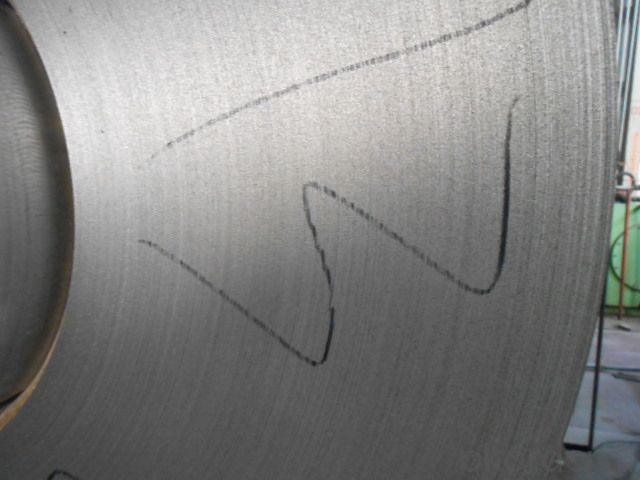
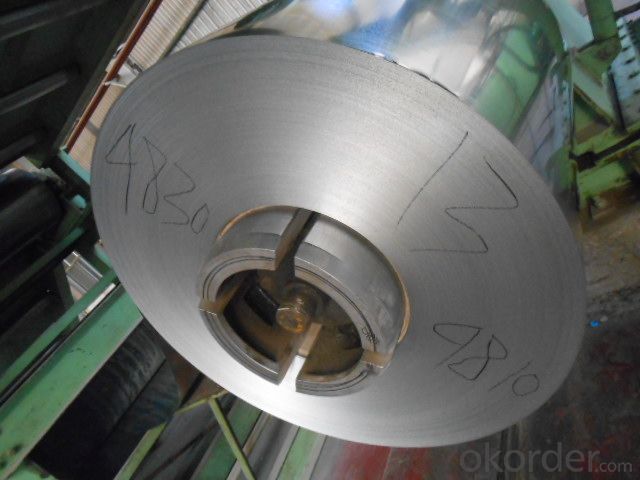
We have established the international advanced quality management system,every link from raw material to final product we have strict quality test;
4.Cold Rolled Steel Specification
Width: 1250,600-1250mm
Coil weight:3-12 MT
Standard:AISI,ASTM,DIN,GB,JIS,JIS G3302 ASTM 653M EN10142
Thickness: 0.16mm~1.5mm,0.16-1.5mm
5.FAQ of Cold Rolled Steel
We have organized several common questions for our clients,may help you sincerely:
A world class manufacturer & supplier of castings forging in carbon steel and alloy steel,is one of the large-scale professional investment casting production bases in China
2.How to guarantee the quality of the products?
We have established the international advanced quality management system,
2.Main Features of the Cold Rolled Steel:
• High strength
• Good formability
- Q: What are the different methods of punching steel coils?
- There are several methods of punching steel coils, including mechanical punching, hydraulic punching, and laser punching. Mechanical punching involves the use of a mechanical press with a punch and die set to create holes or shapes in the steel coil. Hydraulic punching utilizes hydraulic force to drive a punch through the coil, providing high precision and speed. Laser punching, on the other hand, uses a laser beam to cut or form holes in the steel coil, offering great flexibility and accuracy. Each method has its own advantages and suitability depending on the specific requirements of the application.
- Q: What are the dimensions of steel coils used in the appliance industry?
- Steel coils used in the appliance industry can have varying dimensions depending on the specific application and requirements. However, a typical range for these coils is a thickness of 0.015 to 0.035 inches (0.38 to 0.89 millimeters), a width of 24 to 36 inches (61 to 91 centimeters), and a weight between 1,500 to 10,000 pounds (680 to 4,535 kilograms). These dimensions are chosen to facilitate efficient handling, transportation, and processing during the appliance manufacturing process. It is important to verify these dimensions with the manufacturer or supplier for accurate and current information.
- Q: What are the challenges in coil recoiling for high-strength steel?
- Coil recoiling for high-strength steel presents several challenges that must be addressed. To begin with, high-strength steel possesses heightened hardness and strength, rendering it more difficult to coil than regular steel. The greater tensile strength of high-strength steel places additional strain on the recoiling machinery, potentially resulting in damage or machinery failure. Moreover, high-strength steel tends to exhibit reduced ductility, meaning it is less able to endure deformation without fracturing. Recoiling high-strength steel coils necessitates meticulous handling and control to prevent excessive bending or stretching that could lead to material breakage or cracking. Another obstacle arises from the shape memory effect of high-strength steel, whereby the material returns to its original shape after being deformed. Although this property can be advantageous in certain applications, it complicates the recoiling process as the steel coil resists reshaping into a new coil form. Furthermore, high-strength steel often possesses a more intricate microstructure compared to regular steel, characterized by various phases and grain boundaries. This complexity can heighten the difficulty of the recoiling process, as it can impact the material's mechanical properties and response to deformation. Finally, the surface finish of high-strength steel coils is crucial for many applications. Recoiling can introduce surface defects, such as scratches or marks, which may impair the functionality or appearance of the final product. Consequently, maintaining a high-quality surface finish during the recoiling process poses a significant challenge. In summary, the challenges associated with coil recoiling for high-strength steel encompass increased stress on recoiling equipment, reduced ductility, the shape memory effect, complex microstructure, and the need for a high-quality surface finish. Overcoming these challenges necessitates specialized equipment, precise control, and careful handling to ensure the integrity and quality of the recoiled high-strength steel coils.
- Q: How are steel coils used in the manufacturing of body reinforcements?
- Steel coils are used in the manufacturing of body reinforcements by being shaped and molded into various components such as beams, pillars, and supports. These reinforcements provide structural strength and rigidity to the body of vehicles, ensuring safety and protection for occupants in the event of a collision.
- Q: im buying a sword and i dont know if i should buy a cold steel sword or a normal sword and that i can some how make that cold steel
- Cold Steel takes a billet (read piece of metal stock) in high carbon steel, usually 1060 which is pretty good, and then heats it up and pounds it into shape with a pre-made form. This is called forging. Their swords are not Folded (the traditional manner) they are Forged. This is different from taking a piece of 1060 steel and just grinding it down into shape. The forging process creates very strong steel (not as strong as folding) that is much stronger than a sword or knife made from grinding a piece of metal down into shape. Cold Steel's stuff is generally thicker, but they are practical and with enough practice you can wield it just like a thinner lighter sword. Their weapons are what you would call battle ready meaning you could feasibly take it into a sword fight and use it like its more traditionally crafted counter part. The only downfall is its weight and and the fact that it isn't as strong as a folded steel sword, but it would do very well.
- Q: What are the main factors to consider when selecting a steel coil supplier?
- When selecting a steel coil supplier, the main factors to consider are the supplier's reputation and reliability in delivering high-quality products, their ability to meet your specific requirements such as coil size, grade, and coating, their competitive pricing and payment terms, their capacity and ability to handle your required quantity, and their customer service and responsiveness to your needs.
- Q: This question gets beat to death from what ive seen online but im going to ask it since im searching for a few new knives. The question is as the titles states what is the best steel for a general purpose knife? I plan on buying several different types of knives, Folders, fixed blades, ect. I will carry them around with me all the time for basically anything i can think of to use it for. The reason i ask this question here is because looking online everyone has a differnt veiw. Some say stainless is too soft while others say carbon will chip and is more brittle. Even looking at just a single type of steel, carbon fort instance everyone has a different opinion as to whats best leaving me kind of lost for what i should get. Maybe the better word would be What is a good general purpose steel?. Any advice is much appreciated!!!!
- There is no right one answer, because the term all purpose knife covers a very broad spectrum. The same knife that would be good for wood carving will not be the same for food prep, and will not be the same for general utility purposes. I'll just give you my humble opinion. For fixed blade, hard use blades. Where you will be doing bush tasks like chopping, carving etc... 1095 carbon is generally the standard. Now, 1095 is a great steel, it isn't the BEST steel. There are other steels that can outperform it. But for the price and availability its hard to beat. For folders, I prefer a decent stainless, like aus 8. It holds a good edge, and will hold up to any tasks you need a folding knife to do. Contrary to what you will read on the internet, stainless steel is not all crap. Its just that cheap stainless is just that, cheap. Stainless steel is only as good as its tempering process, some companies such as boker do amazing things with the steel and make for an impressive blade. Just stay away from crap stainless. So to sum up. 1095 for fixed blades. aus 8 for folders. These are both common steels used by different companies. If you get caught up on finding the perfect steel, you may overlook more important aspects of the knife itself. Unless your fixed blade is mostly going to be a food processing, and skinning knife, then I would suggest a QUALITY stainless as well. Remember that all high carbon blades need to be kept oiled or they will start to rust very fast. Btw, I suggest anyone looking into knives to check out mora fixed blades. Incredibly cheap, sharp and durable. They are the rockstars of bushcraft.
- Q: What are the uses of galvanized steel coils?
- Galvanized steel coils have a wide range of uses in various industries due to their unique properties. Here are some common uses of galvanized steel coils: 1. Construction: Galvanized steel coils are widely used in the construction industry for various applications. They are used to manufacture roofing sheets, wall panels, and structural components. The galvanized coating helps to protect the steel from corrosion, extending its lifespan and ensuring durability in harsh weather conditions. 2. Automotive industry: Galvanized steel coils are used in the automotive industry for manufacturing different parts and components. These coils are used to manufacture body panels, chassis, and other structural parts of vehicles. The galvanized coating provides excellent corrosion resistance, which is crucial for the longevity of automobiles. 3. Appliances: Galvanized steel coils are used in the production of various household appliances, such as refrigerators, washing machines, and air conditioners. The coils are used to manufacture the outer panels and cabinets of these appliances, providing them with a strong and durable structure. 4. Agriculture: Galvanized steel coils find applications in the agriculture sector as well. They are used to manufacture agricultural equipment, such as grain storage silos, irrigation systems, and livestock enclosures. The galvanized coating protects the steel from rust and corrosion, ensuring the safety and longevity of these agricultural structures. 5. Industrial applications: Galvanized steel coils are widely used in various industrial applications. They are used for manufacturing ductwork, ventilation systems, and industrial piping. The galvanized coating helps to resist chemicals, moisture, and other environmental factors, making it an ideal choice for industrial environments. 6. Electrical industry: Galvanized steel coils are used in the electrical industry for manufacturing electrical enclosures, conduit pipes, and cable trays. The galvanized coating provides excellent protection against corrosion and ensures the safety and durability of electrical installations. 7. Furniture manufacturing: Galvanized steel coils are used in the furniture manufacturing industry for producing furniture frames, shelves, and cabinets. The galvanized coating adds strength and durability to these furniture pieces, making them long-lasting and resistant to corrosion. Overall, galvanized steel coils have a wide range of uses in various industries due to their excellent corrosion resistance, durability, and strength. They are a cost-effective and reliable choice for applications that require protection against rust and environmental factors.
- Q: How does the steel coil market vary regionally?
- The steel coil market varies regionally based on factors such as demand, production capacity, and market dynamics. Different regions have different levels of industrial development and infrastructure, which can affect the demand for steel coils. Additionally, variations in raw material availability, labor costs, and government policies also contribute to regional differences in the steel coil market. For example, developing regions may have higher demand for steel coils due to infrastructure projects, while mature markets may focus on specialized steel coil products for specific industries. Overall, regional variations in the steel coil market reflect the unique economic and industrial characteristics of each region.
- Q: How are steel coils used in the production of metal ductwork?
- The production of metal ductwork relies heavily on steel coils. Typically constructed from high-quality steel, these coils serve as the primary raw material for manufacturing ductwork. To begin the process, the steel coil is unwound and then cut into specific lengths based on the required dimensions of the ductwork. These lengths are then shaped using specialized machinery, such as roll formers or bending machines, to achieve the desired form. The steel coils are essential in providing the necessary strength and durability to the ductwork, ensuring its ability to withstand the pressure and environmental conditions it may encounter during operation. Additionally, the composition of the coil allows for easy fabrication and customization, enabling manufacturers to produce ductwork in various shapes and sizes to meet specific project requirements. Moreover, steel possesses inherent properties that make it an ideal material for ductwork. Its resistance to corrosion and fire makes it highly desirable. Steel coils can also be coated with protective layers, such as galvanized or stainless steel finishes, to further enhance their longevity and performance. This added protection ensures that the ductwork remains intact and functional, even in harsh environments or when exposed to corrosive substances. In conclusion, steel coils are indispensable in the production of metal ductwork as they provide the necessary raw material for fabrication. Their strength, durability, and customization capabilities make them a crucial component in the manufacturing process, resulting in reliable and long-lasting ductwork systems.
Send your message to us
Cold Rolled Steel Coil with Prime Quality various sizes and Lowest price
- Loading Port:
- Shanghai
- Payment Terms:
- TT OR LC
- Min Order Qty:
- 100 m.t.
- Supply Capability:
- 10000 m.t./month
OKorder Service Pledge
OKorder Financial Service
Similar products
Hot products
Hot Searches
Related keywords
